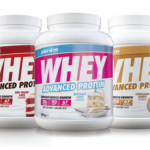Probiotics: Unlocking the Power of Good Bacteria for Better Health
Probiotics have become increasingly popular in the wellness world, and for good reason. These live microorganisms, often referred to as “good” or “friendly” bacteria, provide a wide range of health benefits, particularly when it comes to gut health. From improving digestion to boosting immunity, probiotics can play a significant role in promoting overall well-being.
In this article, we’ll dive into what probiotics are, how they work, their potential health benefits, and how to incorporate them into your daily routine.
Click Here To Get The Best Deal On Probiotics
What Are Probiotics?
Probiotics are live bacteria and yeasts that are beneficial for your health, especially your digestive system. They are naturally found in your body, particularly in your gut, but can also be consumed through certain foods and supplements. Unlike harmful bacteria that can cause illness, probiotics help maintain a healthy balance of gut flora, promoting digestion and supporting immune function.
The most common strains of probiotics are from two groups:
- Lactobacillus: This is the most common type of probiotic found in fermented foods like yogurt and kefir. It can help with digestion and may alleviate issues such as diarrhea or lactose intolerance.
- Bifidobacterium: Found in some dairy products, Bifidobacterium can help ease symptoms of irritable bowel syndrome (IBS) and improve the overall balance of bacteria in the gut.
Other strains, such as Saccharomyces boulardii, a type of yeast, can also have probiotic effects and are often used to combat diarrhea.
How Do Probiotics Work?
Probiotics contribute to gut health by promoting a balanced and healthy microbiome—the community of microorganisms that live in your digestive tract. This balance is essential for proper digestion, nutrient absorption, and immune defense. Factors such as poor diet, stress, antibiotics, and illness can disrupt the balance of good and bad bacteria in your gut, leading to various health issues.
Probiotics work by:
- Restoring balance: Probiotics can help replenish the good bacteria in your gut after it has been disrupted, aiding in digestion and nutrient absorption.
- Competing with harmful bacteria: They prevent the growth of harmful bacteria by competing for space and nutrients in the gut.
- Enhancing the immune system: Probiotics interact with your immune cells, strengthening the body’s defenses against pathogens.
Health Benefits of Probiotics

Probiotics have been linked to a wide range of health benefits, particularly related to gut health, immune function, and overall well-being. Here are some of the most notable benefits of adding probiotics to your diet:
Click Here To Get The Best Deal On Probiotics
1. Improved Digestive Health
Probiotics can help treat common digestive issues such as diarrhea, constipation, and irritable bowel syndrome (IBS). By restoring a healthy balance of gut bacteria, they may also help reduce symptoms of bloating, gas, and stomach discomfort.
Research shows that certain probiotic strains can prevent or treat diarrhea caused by infections, antibiotics, or travel-related issues (known as traveler’s diarrhea).
2. Boosted Immune System
A healthy gut plays a crucial role in supporting the immune system. Probiotics help strengthen the gut lining, making it harder for harmful pathogens to enter the bloodstream. They also stimulate the production of antibodies and immune cells that fight off infections.
Studies have found that people who take probiotics regularly may experience fewer and less severe colds, flu, and respiratory infections.
3. Support for Mental Health
The gut and brain are connected through the gut-brain axis, and growing research suggests that probiotics may have a positive impact on mental health. Several studies have shown that certain probiotic strains can help reduce symptoms of anxiety, depression, and stress by promoting a healthy gut.
Benefit: Enhancing gut health may indirectly support mental clarity, reduce mood swings, and improve overall mental well-being.
4. Heart Health
Some strains of probiotics may help lower cholesterol levels and regulate blood pressure. Certain types of Lactobacillus, for example, can break down bile in the gut, preventing it from being reabsorbed into the bloodstream as cholesterol.
Benefit: Regular consumption of probiotics may reduce the risk of heart disease and support overall cardiovascular health.
5. Weight Management
Emerging evidence suggests that probiotics may play a role in weight management by influencing the way your body stores fat, regulates hormones, and absorbs nutrients. Some probiotic strains have been found to reduce the absorption of dietary fat, allowing more fat to be excreted rather than stored.
Benefit: Probiotics may help reduce belly fat and contribute to weight loss when paired with a healthy diet and exercise.
6. Skin Health
Probiotics may benefit skin conditions like acne, eczema, and rosacea. The anti-inflammatory properties of probiotics can help reduce skin irritation and improve the skin barrier’s ability to retain moisture. A healthy gut microbiome can also reduce systemic inflammation, which is often linked to skin flare-ups.
Benefit: Consuming probiotics may promote clearer, healthier skin by reducing inflammation and supporting skin hydration.
Sources of Probiotics
There are two primary ways to introduce probiotics into your system: food and supplements.
1. Fermented Foods
Many fermented foods naturally contain probiotics due to the fermentation process. Incorporating these foods into your diet is a delicious and nutritious way to boost your gut health.
Popular probiotic-rich foods include:
- Yogurt: One of the most well-known sources of probiotics, yogurt contains live cultures that promote gut health. Look for yogurts labeled with “live and active cultures.”
- Kefir: A fermented milk drink similar to yogurt, kefir is packed with multiple strains of probiotics.
- Sauerkraut: Fermented cabbage, sauerkraut is rich in probiotics as well as fiber, which further supports gut health.
- Kimchi: A spicy Korean dish made from fermented vegetables like cabbage and radishes, kimchi contains both probiotics and prebiotics (food for probiotics).
- Miso: A traditional Japanese paste made from fermented soybeans, miso is often used in soups and adds a dose of probiotics to your diet.
- Kombucha: A fermented tea beverage that contains probiotics, kombucha is increasingly popular as a health drink.
- Tempeh: Made from fermented soybeans, tempeh is a protein-rich food that contains probiotics and is popular in plant-based diets.
2. Probiotic Supplements
Probiotic supplements are a convenient way to ensure you’re getting enough good bacteria, especially if your diet lacks fermented foods. They are available in capsules, powders, or liquids and often contain a variety of strains to target specific health concerns.
When choosing a supplement, look for one that contains several billion colony-forming units (CFUs) and multiple strains of probiotics for the best results. It’s also important to select supplements that have been tested for shelf stabilityand survivability in the gut.
How to Incorporate Probiotics Into Your Routine
Incorporating probiotics into your daily routine is simple. Here are some easy ways to add them to your diet:
- Start with fermented foods: Try adding a serving of yogurt, sauerkraut, or kefir to your meals each day.
- Take a supplement: If you find it hard to get enough probiotics from food, consider taking a high-quality probiotic supplement.
- Be consistent: For the best results, consistency is key. Take probiotics regularly, whether through food or supplements, to maintain a healthy gut flora.
- Pair with prebiotics: Prebiotics are types of fiber that feed the good bacteria in your gut. Foods like bananas, garlic, onions, and asparagus are rich in prebiotics. Pairing probiotics with prebiotics can help them thrive.
Are Probiotics Safe?
For most people, probiotics are considered safe and are generally well-tolerated. However, some people may experience mild side effects, such as gas or bloating, when they first begin taking probiotics. These symptoms typically subside after a few days as your gut adjusts to the new bacteria.
If you have a weakened immune system or a serious underlying health condition, it’s a good idea to consult your healthcare provider before starting a probiotic regimen.
Conclusion
Probiotics are a powerful tool for improving gut health and overall wellness. From supporting digestion and boosting immunity to promoting mental clarity and heart health, the benefits of probiotics are wide-ranging. By incorporating probiotic-rich foods or supplements into your daily routine, you can foster a healthier, more balanced microbiome and enjoy the many benefits these friendly bacteria offer.

Whether you’re aiming for better digestive health, clearer skin, or a stronger immune system, probiotics are a simple yet effective way to support your body from the inside out.



